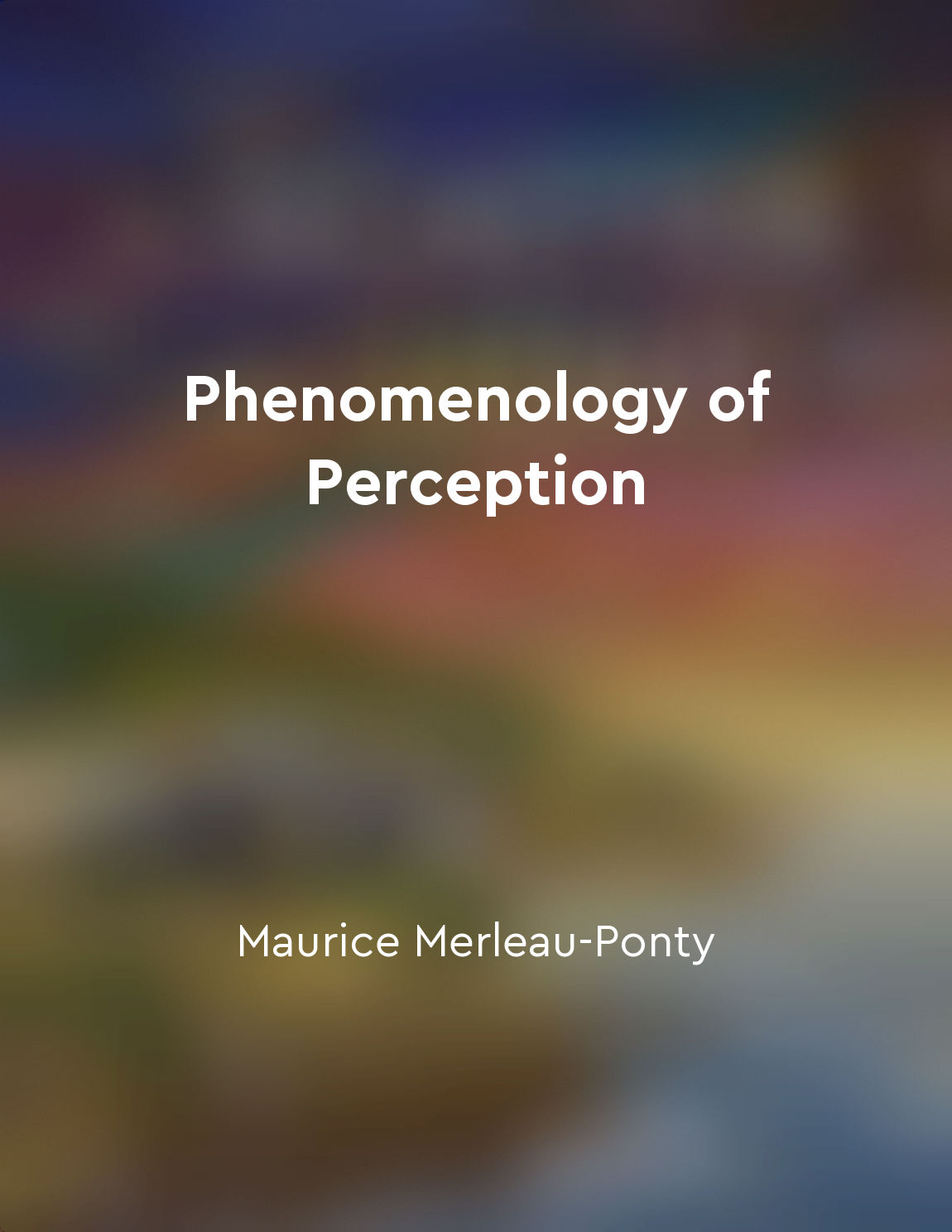Emotions are not internal causes of behavior from "summary" of The Concept of Mind by Gilbert Ryle
According to Ryle, the idea that emotions are internal causes of behavior is a common misconception that stems from a flawed understanding of the relationship between mental states and actions. This belief suggests that emotions exist as hidden forces within an individual, compelling them to act in certain ways. However, Ryle argues that this view is mistaken because it treats emotions as things that exist independently of the actions they are purported to cause. Ryle believes that this misunderstanding arises from the tendency to think of emotions as entities that reside within the mind, directing behavior from the inside out. This perspective, he argues, is rooted in a Cartesian dualism that separates the mind from the body and posits a mysterious realm of mental entities that influence physical actions. However, Ryle rejects this dualistic approach and instead advocates for a more holistic understanding of the mind-body relationship. In Ryle's view, emotions are not internal causes of behavior but are rather aspects of our responses to the world around us. Emotions are not hidden forces that drive us to act in certain ways; instead, they are part of the complex web of thoughts, feelings, and behaviors that make up our everyday experiences. Rather than being hidden within us, emotions are expressed through our actions and interactions with the world. To illustrate this point, Ryle uses the example of a person feeling fear in a dangerous situation. Rather than seeing fear as a hidden force compelling the person to act in a certain way, Ryle suggests that fear is simply a part of the person's response to the perceived danger. The person's actions in this situation are not caused by fear itself but are instead a result of their overall mental and physical response to the danger they are facing. By reframing emotions as responses rather than internal causes of behavior, Ryle challenges us to rethink our understanding of the mind-body relationship. Emotions are not hidden forces that drive us to act in certain ways; instead, they are integrated aspects of our experiences that shape how we interact with the world around us. This shift in perspective can help us better understand the complex and dynamic nature of human behavior and the role that emotions play in shaping our responses to the world.Similar Posts
The mind can shape the body's physical responses
Dr. Joe Dispenza explains how the mind has the power to influence the body's physical responses. Our thoughts and beliefs can a...

Social media fuels our tribal instincts
In the digital age, our tribal instincts have found a new playground to run wild - social media. These platforms have become th...
Success comes from perseverance
Success is not achieved overnight. It requires dedication, hard work, and most importantly, perseverance. Without perseverance,...

Perception is a form of embodied consciousness
Perception is not a purely mental process, as commonly believed. It is not just a matter of the mind receiving external stimuli...
Selfaware individuals are better at managing stress and conflict
Self-aware individuals have a distinct advantage when it comes to dealing with stress and conflict. This heightened level of se...
Commitment and consistency: people want to stay true to their word
When people make a commitment, they feel a sense of responsibility to follow through on their word. This principle of commitmen...

Positive emotions enhance creativity
When we experience positive emotions, our brain becomes more open to new ideas and possibilities. This is because positive emot...
Acceptance of pain is the path to healing
When you completely accept this moment, when you no longer argue with what is, the compulsion to think lessens and is replaced ...
Setting boundaries is an act of selflove
Setting boundaries is a fundamental aspect of self-care that many people overlook. It involves establishing limits for yourself...
Our behavior is often guided by social scripts
One important concept to understand when examining human behavior is the idea that we often rely on social scripts to guide our...
